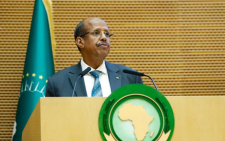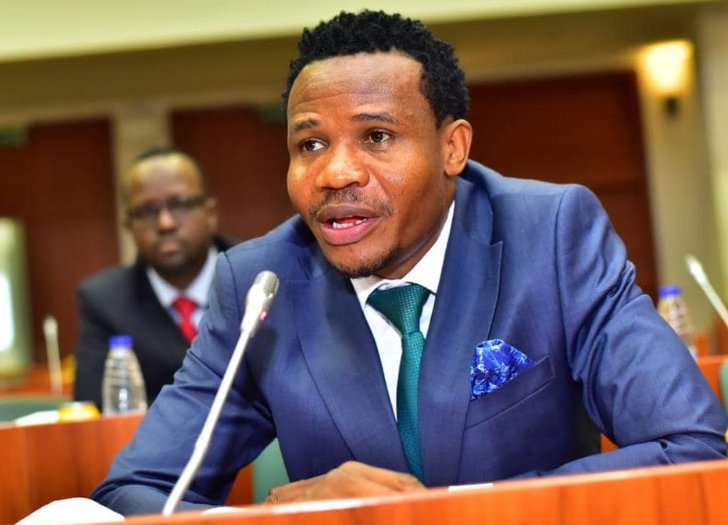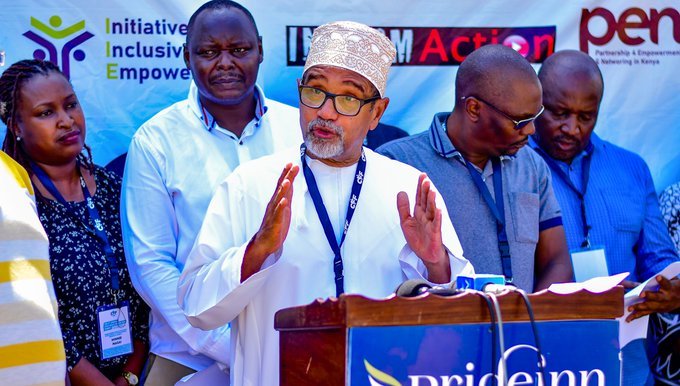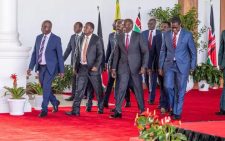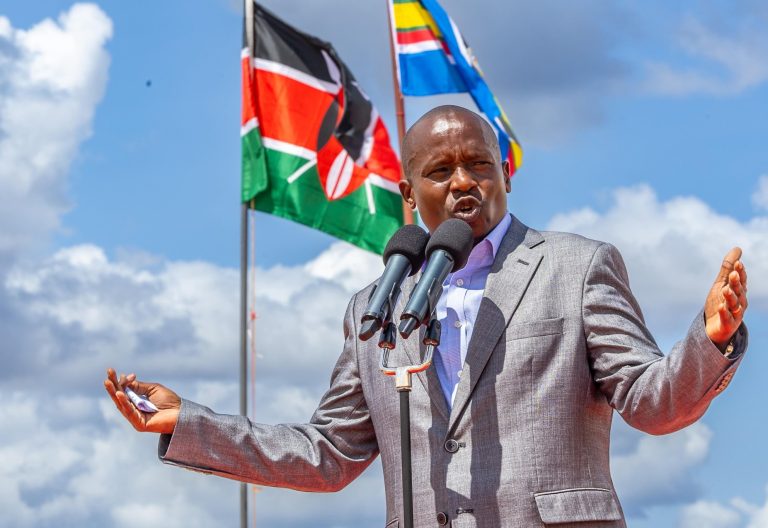How MPs use committees to extort Kenyans
Eric Wainaina and Hilary Mageka
A protest letter by an alcohol distiller to National Assembly Speaker Justin Muturi accusing members of a watchdog committee of receiving kickbacks to fix his company in a pending investigation has opened the lid on the rot that belies the august House.
It has now emerged that both Houses of Parliament are grappling with threats of losing their sanctity and instead becoming dens of extortion, bribery and corruption.
A section of lawmakers have been accused of receiving millions of shillings to ostensibly protect top officials in public and corporate institutions implicated in graft and other criminal activities.
Over the years, MPs who sit on committees scrutinising the Auditor General’s reports, have been accused of being lenient on counties whose governors grease their hands and threatening Cabinet Secretaries, Principal Secretaries and parastatal heads with censure motions.
There is consensus among pundits and parliamentarians that the Houses have gone rogue, and have turned their oversight and legislative roles into avenues to extort and collect bribes by promising favourable reports to exonerate those found culpable. Some of the committees are even said to engage in “fishing expeditions” hoping to be “silenced”.
In 2018, the National Assembly Powers and Privileges Committee chaired by Speaker Justin Muturi resolved to call in the Ethics and Anti-Corruption Commission following claims that MPs were bribed with up to Sh20,000 each to shoot down a report on the importation of contaminated sugar.
Damning allegations
Minority Leader in the National Assembly John Mbadi says though he cannot vouch for the authenticity of the allegations, the claims are not only rife among members of the public, but among MPs themselves.
“We have heard rumours that, like in the sugar thing, a witness is said to have given some members Sh300,000 each.
We are also told that another officer gave some MPs who are not even members of the committee Sh500,000 each to go and defend them,” said Mbadi.
In the latest claim, London Distillers Limited (LDK), which is embroiled in a dispute with residents of Great Wall Gardens, owned by Erdermann Property Ltd over claims of emptying toxic waste into Athi River, that is subject of a probe by the House, has accused members of the Implementation Committee of accepting houses at an estate off Mombasa road to influence the outcome.
LDK chairman Mohan Galot, in his damning allegations that he wants investigated, last week told Speaker Muturi: “The said members of the committee received houses either freely or in subsidised rates through proxies being family members, relatives or companies in which they have interests.”
But committee chairman Narok North MP Moitalel ole Kenta rubbished the claims, saying: “We want whoever made the wild allegations to substantiate and give tangible evidence before an independent establishment.”
Claims of extortion and devious schemes to make extra cash in allowances have also been cited as the motive behind parallel investigations by parliamentary committees where rival National Assembly and Senate teams have cross-purposed on at least four investigations whose outcomes differ, raising protests from House leaders about wastage of public funds.
For instance, two House committees of the National Assembly – Public Investments Committee and the Health Committee as well as the Senate House Committee – fought to undertake parallel investigations into the Covid-19 billionaires scandal while different teams from both Houses clashed over the Ruaraka land scandal.
These are not the first claims relating to extortion through blackmail, bribery and other intimidations to influence their legislative and oversight roles that both Houses are facing, casting doubts on their ability to independently execute roles.
But the growing number of accusations against the honourable leaders has prompted some MPs and experts to demand that the Houses be placed under probe by investigative agencies.
People Daily has also established the existence of a cabal comprising a former House leadership post holder and two nominated senators who target budgeted parastatals, governors and corporates through statements demanding clarity and information regarding various matters, some of which never get to the floor of the House.
The cabal has so far targeted a roads parastatal, three commercial banks, a beer manufacturer and a health insurance provider by highlighting possible irregularities in the firm.
The lawmakers subsequently leak the requested statements to the media, hoping their publication will up their bargain.
Yesterday, Kirinyaga Senator Charles Kibiru, who has served in the Senate’s County Public Accounts and Investments Committee (CPAIC), said actions of some MPs who lack integrity and ethos, have only served to give the Houses a bad reputation which he said should be “painfully” salvaged.
“If as a House we are left alone, we will go rogue and run amok. If the society is left alone, it places a lot of burden on the leaders.
The private sector is making the Houses look bad by enticing members. We cannot continue doing things this way, we have to change. Anything that we touch (oversighting) there are allegations of corruption,” the Senator told People Daily.
Kibiru added: “If a governor is supposed to meet the CPAIC and wants to entice the committee, it means he is not clean in the first place.
He lacks integrity. And everybody has his price depending on the economic harshness, and also we have a problem of living beyond our means.”
Previously, the current Parliament has been accused, even by its own members, of extorting and collecting bribes, notably during the probe of contraband sugar by the Trade committee where some MPs, led by Kiambu Woman Rep Gathoni wa Muchomba, claimed some of their colleagues were given as low as Sh10,000 “which was being exchanged in the toilet” to alter the report.
Kimilili MP Didmus Barasa, who last year accused a colleague of attempting to bribe him with Sh10,000 to reject the report, yesterday noted that extorting and bribery tricks by some MPs were ruining the reputation of the House and demanded investigations.
“Not all members behave so but their reputation is also at stake. Some perform their roles with integrity.
The speaker should direct the Powers and Privileges Committee to investigate and give recommendations that should be acted on,” Barasa said.
In August 2018, allegations against MPs being compromised by subjects of their investigations surfaced during the sugar debate, casting doubts on the integrity of Parliament and its ability to probe corruption.
Former Majority leader Aden Duale and Mbadi— voiced concern that MPs had turned House committees into money-making opportunities.
Mbadi, without dropping names, claimed some MPs were getting compromised by witnesses to either defend them or act as their ‘mouthpieces’ whenever they appeared before House committees instead of pushing them to give answers regarding the alleged irregularities.
Senate’s CPAIC which ran a parallel probe on the controversial Ruaraka land saga that was also investigated by the National Assembly’s Lands Committee, was in 2018 accused by Nairobi businessman Francis Mburu of attempting to solicit Sh100 million from him to write a favourable report.
Mburu submitted an alleged audio recording to the DCI, saying some members of the committee then chaired by Homa Bay Senator Moses Kajwang’, met him at the Laico Regency’s Summit Club where the cash demand was made, claims which Kajwang’ team, which later wrote a report that implicated top government officials, rubbished.
Later, the report with sweeping recommendations was tabled in the House but was rejected, with some senators accusing their colleagues of having been given between Sh30,000 and Sh50,000 to stay away from the House when the report came up for voting.
The Upper House has also been accused on several occasions of demanding hefty bribes to protect governors linked to corruption.
In September last year, the Council of Governors through its chair then, Kakamega Governor Wycliffe Oparanya, asked EACC and DCI to investigate the “extortionist nature of the CPAIC”.
“We hereby categorically state that governors will not bow to the extortionist nature of this County Public Accounts and Investments Senate committee and will only appear virtually until Covid-19 pandemic is over and funds disbursed to counties,” Oparanya said in his invitation to the EACC and DCI to investigate the extortion claims.
Audio recording
A top county official in Mt Kenya told People Daily that in one of the instances he appeared before the committee, they approached a senator who had previously served with the governor in the National Assembly and a bribe was given to ensure he was “treated well” by senators.
“The senator collected money but never delivered. When we went to the Senate, he was not present and his phone was off.
The governor was ‘exposed’ because he found a very hostile committee. It was a bitter situation considering that the cash involved could even make someone kill,” said the county official who did not want to be identified.
During the botched impeachment of Governor Anne Waiguru last year, while protesting against a special committee to handle the motion, the area senator fell short of accusing his counterparts of exploiting oversight avenues to get money, saying “some of the senators being proposed, without naming names, we know them. They are rent seekers. That’s a fact, we know each other”.
Former Deputy President William Ruto’s chief of staff Maryanne Kitany, during the hearing of a nasty divorce case against Meru Senator Mithika Linturi, exposed the intrigues behind impeachment motions and their withdrawal, saying on the day the lawmaker was to move the Waiguru impeachment motion in Parliament, the two were “having a good time” in Naivasha.
Kitany had been detailed by the State to offer Linturi a treat in Naivasha in order to ensure that he was not available to move the impeachment motion.



